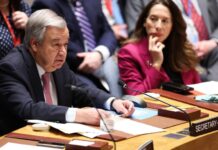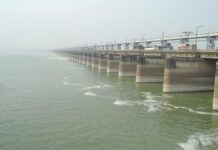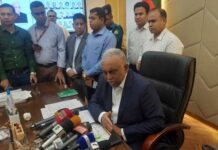Bangladesh Centre for Advanced Studies (BCAS) and UN-Women on Wednesday jointly organized a training workshop on “Gender Responsive Adaptation and Resilience to Climate Change” at Spectra convention centre in Dhaka.
The workshop was arranged for facilitating and enhancing the capacity of the national government officials of the key ministries and departments and climate professionals for influencing relevant government policies and decisions on gender-responsive climate actions, said a press release from BCAS.
In the inaugural session Dr. Dwijen Mallick, a fellow of BCAS told that it is a very timely and important issue to incorporate gender-responsive adaptation programs in policies and project implementation process.
In reference to IPCC sixth assessment report, Dr. Mallick said, “Global warming and sea-level rise are rapidly taking place. As a consequence, our coastal districts would be severely affected by permanent waterlogging with saline water and the northern districts would be affected by drought and flood. The disaster risks and vulnerability of the women, poor and disadvantaged communities would be proportionately increased. In this context risk and vulnerability assessment of the women and poor communities and adopting gender-responsive adaptation plans are very important.”
UN-Women representative Priodarshine Auvi told that “Women have great contribution to agriculture and other productive sectors but their contributions are not properly recognized since they are deprived of entitlement to the property. Though the policies and strategies have made recommendations for women but in reality, those are not properly materialized. Women feel uncomfortable in the shelters during disasters due to lack of security and a convenient environment. UN-Women has been trying to identify these challenges and recommendations for incorporating into policies and strategies under EmPower project. This project is being implemented in five districts (Jamalpur, Kurigram, Cox’Bazar, Satkhira and Khulna) of five different ecosystems. The women-led Civil Society Organizations are the local implementing partners while BCAS is the technical partner of this project.”
Chaired by Khandaker Mainuddin, chairperson of BCAS the workshop was followed by three thematic presentations which included, Climate Change science, impacts and vulnerability; Mainstreaming gender equity into climate policy and strategy; and gender-responsive climate budgeting in Bangladesh.
The presenters were: Dr. Dwijen Mallick and Mr. Monwarul Islam of BCAS and Dr. Sharmind Neelormi, professor, Department of Economics, Jahangirnagar University. The workshop was graced by the representatives of the Ministry of Environment, Forest and Climate Change; Department of Environment; Bangladesh Agricultural Research Council, Water Development Board and other concerned government offices, NGOs and research organizations.
The participants urged for gender equitable adaptation plans and properly incorporating those in policies and strategies.
Home Environment Training on Gender Responsive Adaptation and Resilience to Climate Change held in...
































